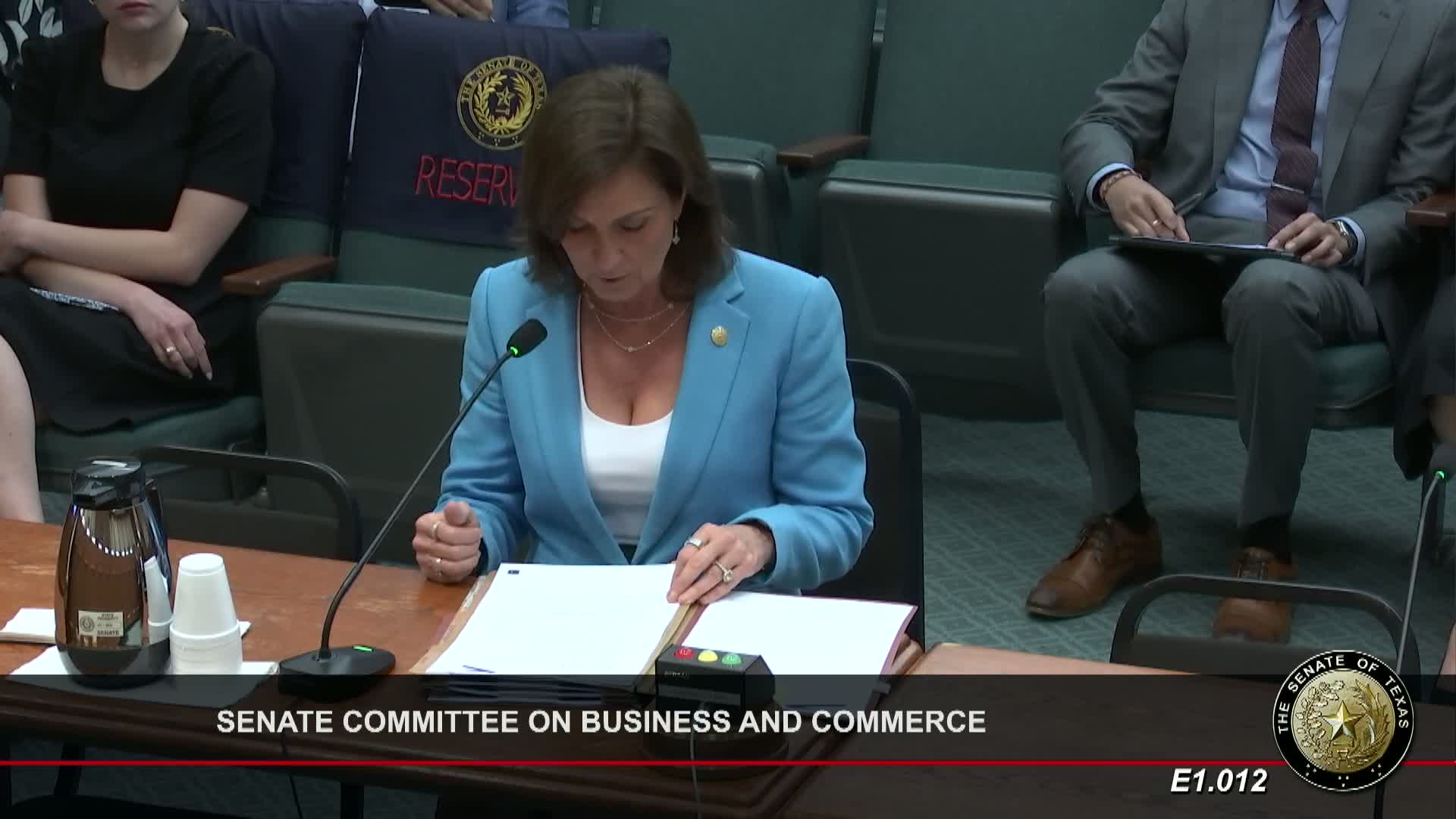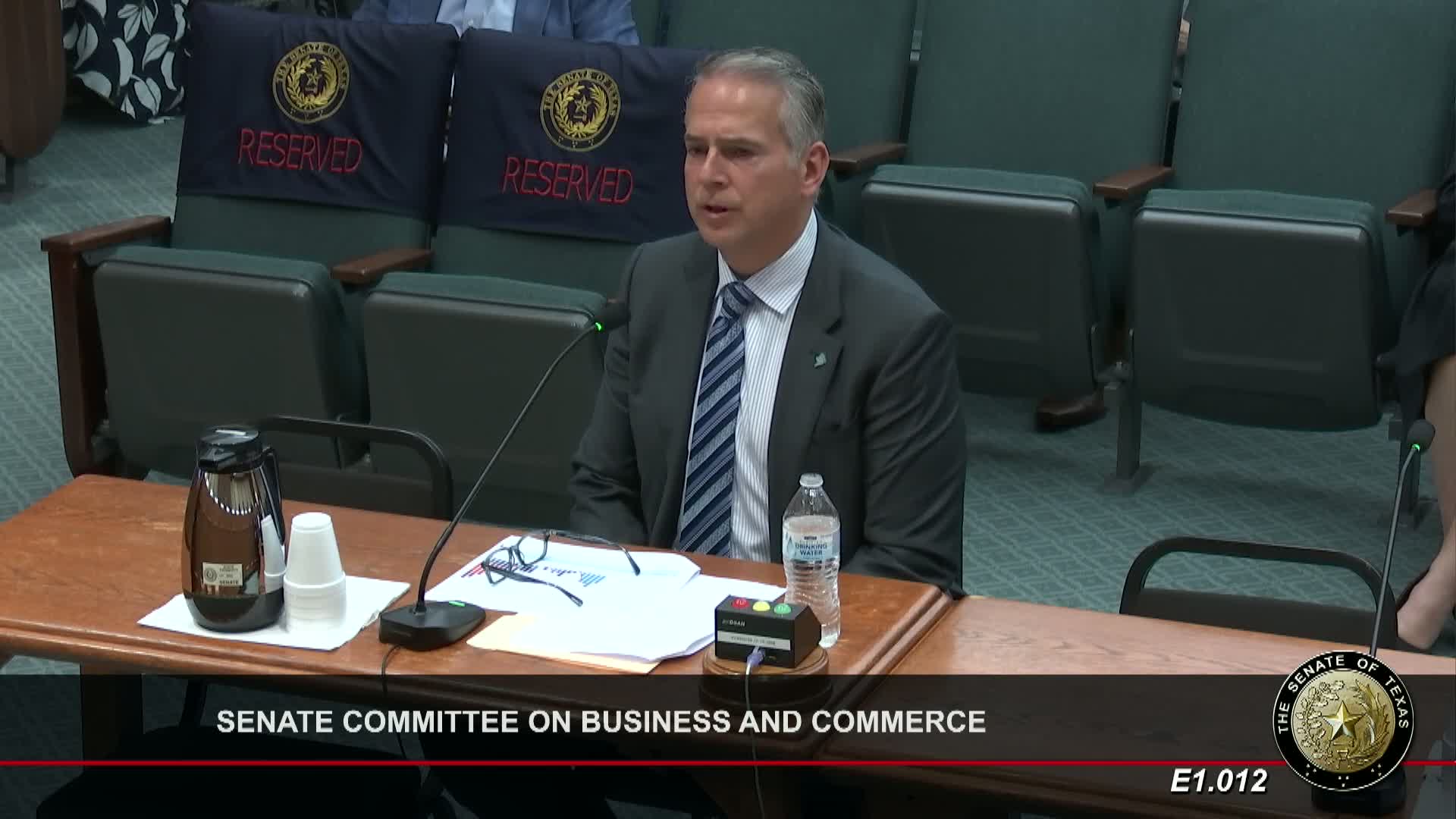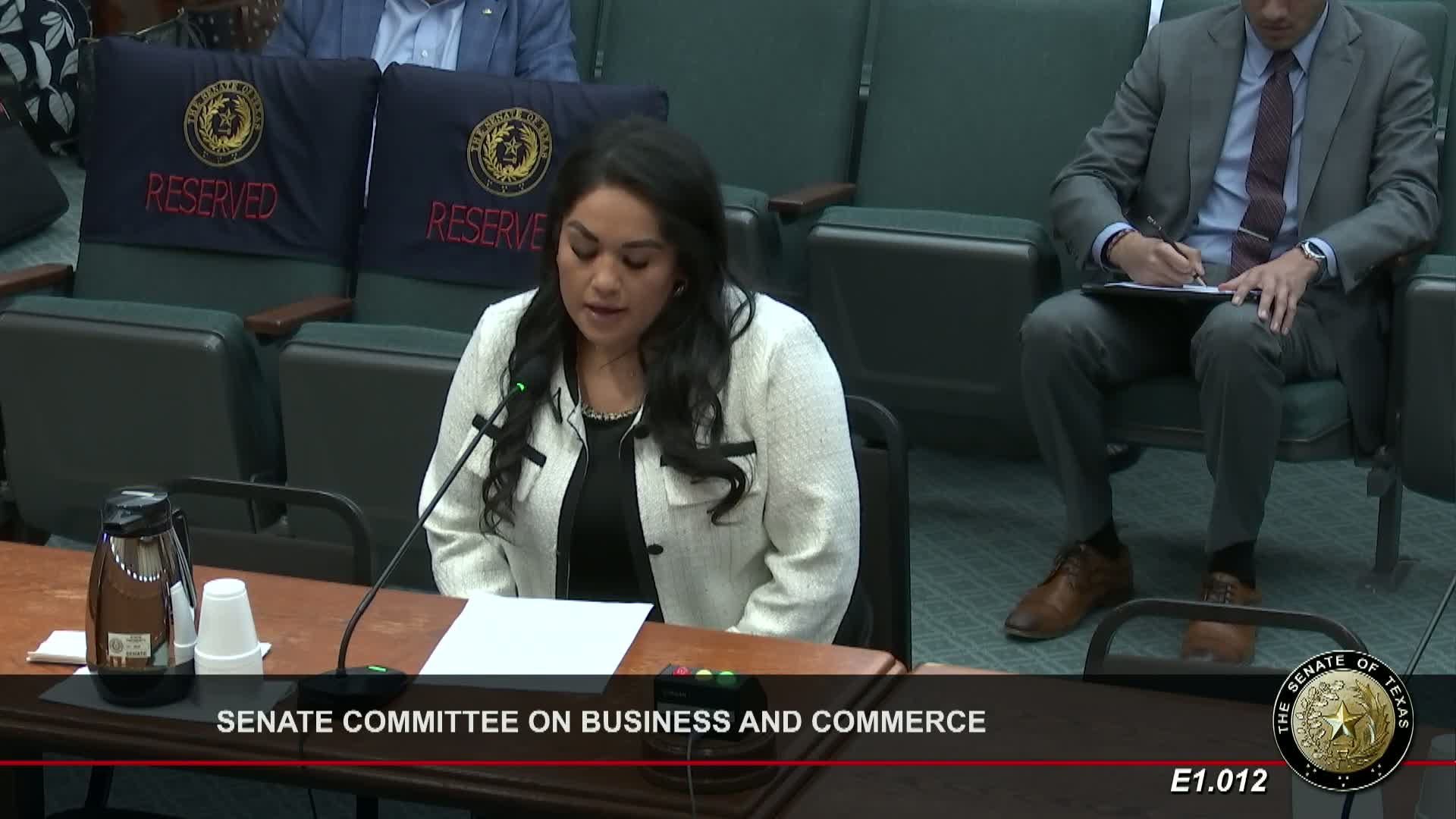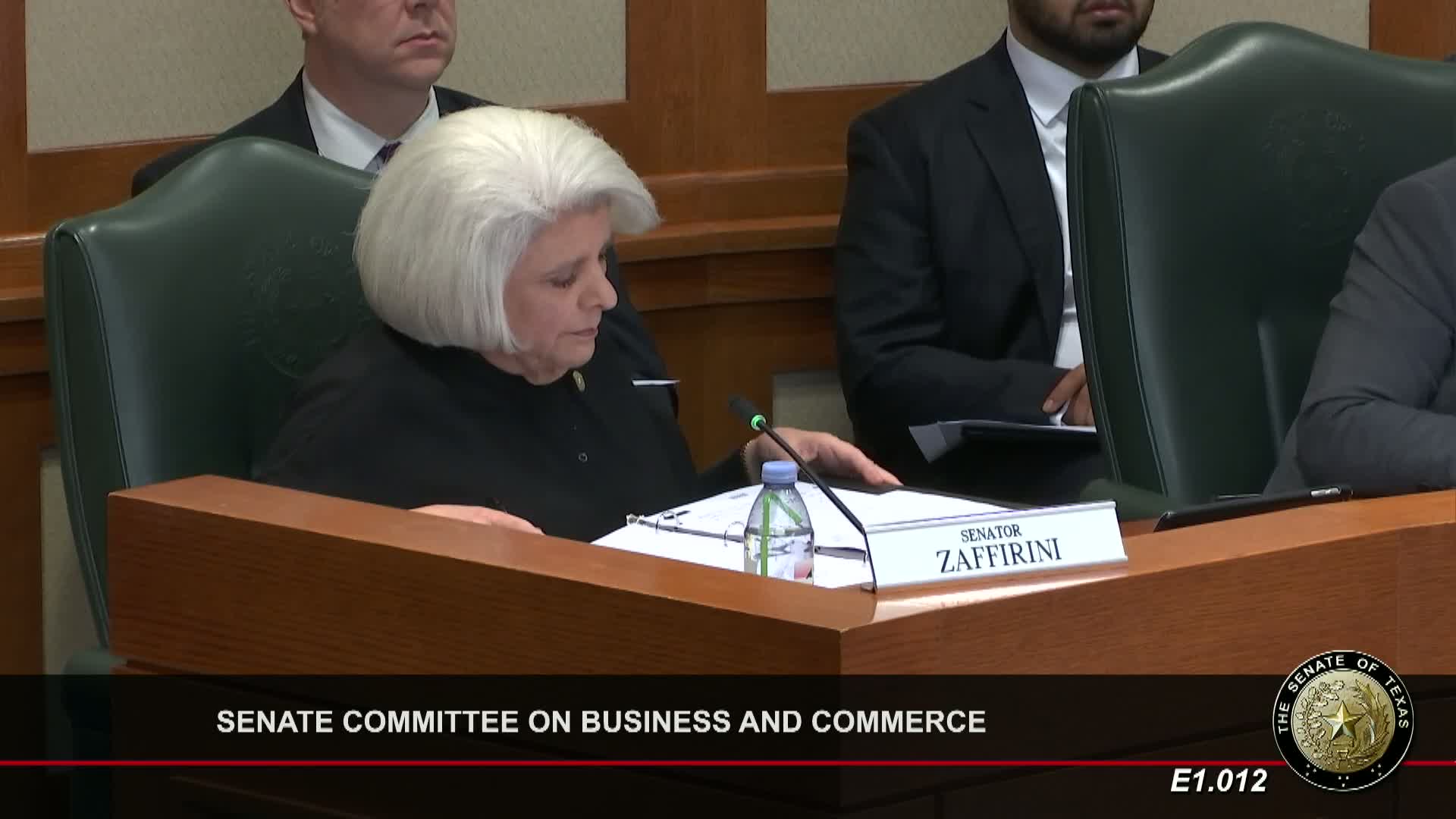Article not found
This article is no longer available. But don't worry—we've gathered other articles that discuss the same topic.

Senator Sparks lays out proposal to pair produced‑water desalination, cogeneration and data centers to reduce freshwater demand

ERCOT presents updated load forecast showing large data-center-driven increases; ERCOT applies historical adjustments to produce an operationally useful outlook

Senate Committee on Business & Commerce reports five bills favorably to the Senate; no roll-call opposition

Committee considers statewide regulatory framework for delivery network companies; industry witness supports permit and background checks

Two committee bills would tighten recording rules and give clerks tools to block suspected fraudulent deeds

